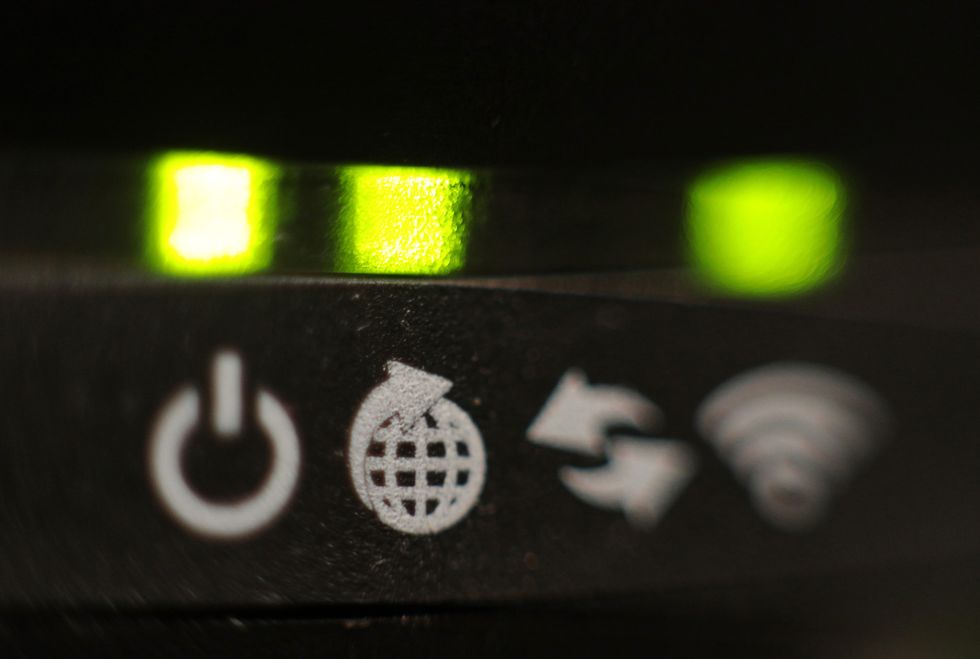Which? has ranked the biggest broadband suppliers in the UK after surveying over 4,000 people
BING IMAGE CREATOR | DALL-E
Smaller start-ups have roundly beaten the UK's four biggest broadband suppliers
- BT, TalkTalk, Virgin Media, and Sky were all outranked by smaller firms
- Virgin Media scored the lowest of the biggest UK broadband providers
- Community Fibre was ranked in first place
- But Which? refuses to recommend the brand as it increases prices mid-contract
Don't Miss
Most Read
Trending on GB News
Britain's biggest broadband providers — household names like BT, TalkTalk, Virgin Media, and Sky — were ranked below smaller, lesser-known suppliers in the latest customer survey from consumer champion Which?. It spoke to 4,471 people across the UK with a home broadband contract to put together its latest ranking.
The final leaderboard saw Virgin Media, Sky, BT Broadband, and TalkTalk ranked below smaller rivals like Zen Internet, Hyperoptic and Community Fibre. Zen Internet relies on infrastructure maintained by BT-owned Openreach, while the others manage their own full-fibre broadband network that's separate from other providers.
Virgin Media, available in over 16 million homes and businesses nationwide, finished bottom in the Which? rankings, receiving the lowest scores in customer service and communication. Sky finished second-bottom, receiving the lowest rank for connection speed. BT Broadband scored poorly on value for money, while TalkTalk received low ratings for customer service and communication.
Which? Head of Home Products and Services Natalie Hitchins said: “Our latest broadband provider rankings show that consumers could be better off choosing a smaller company which prioritises customer service over a giant that also stings them with unfair mid-contract price rises.
“Customers with contracts that are ending soon should look at their switching options as our research found that consumers that did that saved almost £100 on average. Providers planning to cash in one last time in April with unfair mid-contract price hikes must do the right thing and adopt Ofcom's proposals as soon as possible, while firms falling short on customer service must up their game.”

Common complaints flagged to Which? were around communication and value for money
PRESS ASSOCIATION
The top-scoring broadband supplier in the customer survey was Community Fibre.
However, Which? has said that it will not award the broadband firm its Recommended Provider status because it includes mid-contract price rises with its broadband packages and has not signed up to regulator Ofcom’s broadband speeds Code of Practice and automatic compensation scheme.
These two voluntary schemes are designed to ensure a fairer broadband market – the Code of Practice requires Internet Service Providers, or ISPs, to give customers an idea of the download speeds they can expect and a guaranteed minimum speed before they sign up for a contract.
As the name suggests, the automatic compensation scheme ensures those suffering from poor service will get a full or partial refund without having to chase their ISP.
After surveying 4,471 broadband users, Which? came up with the following customer scores.
- Community Fibre | 71%
- Zen Internet | 70%
- Hyperoptic | 68%
- Utility Warehouse | 67%
- EE Broadband | 66%
- Vodafone Broadband | 65%
- Plusnet | 64%
- TalkTalk | 63%
- BT Broadband | 62%
- NOW (formerly NOW TV) | 62%
- Shell Energy Broadband | 59%
- Sky Broadband | 57%
- Virgin Media | 56%
Virgin Media came bottom of the rankings, and received sub-par ratings in most categories outlined by Which?. However, its most dire scores were related to customer service and communication – a quarter of customers told Which? the company is hard to get in touch with. It managed four stars for connection speed, courtesy of its impressive full-fibre and cable network, which offers speeds as high as 2Gbps, that's 28x faster than the UK average. But a higher than average proportion of customers said they had experienced connection dropouts and one in five said they had had an outage lasting more than an hour in the past year.
Sky finished second bottom in Which?’s league table with a customer score of just 57%. It received the lowest rating for connection speed, alongside Shell Energy Broadband, and its customers were the most likely to say the reliability of their connection was poor.
Value for money is also a weakness for the satellite TV firm — with one in five Sky customers gave this a low rating and half of those who had switched away from Sky told Which? they had been motivated by a price rise.
BT, which is the UK’s biggest provider, was competitive for connection speed and reliability but got middling ratings for customer service and technical support.
Value for money was rated poor – unsurprising given that it was the first to introduce inflation-linked price rises in 2020. Despite the lacklustre ratings, BT customers were most likely to have been with the provider for more than three years.
While TalkTalk managed to outdo similarly-sized providers, it received mediocre scores in most categories as well as low ratings for customer service and communication.
Of the customers who had left TalkTalk for another provider, 38% said poor customer service was their main reason for doing so. TalkTalk got the best ranking of the UK’s four dominant providers, but it is some way behind Community Fibre and Zen Internet.
LATEST DEVELOPMENTS
A spokesperson for Virgin Media said: “We always work hard to provide our millions of customers with excellent service and we’re continuing to make changes across our business to deliver a better experience.
“Which?’s own analysis shows we continue to offer excellent value, with customers paying an average of just 10p more per day for services they use constantly. The amount we receive from price increases is greatly outweighed by the £5 million we invest every single day to upgrade our networks and services, and meet ever rising demand.”








